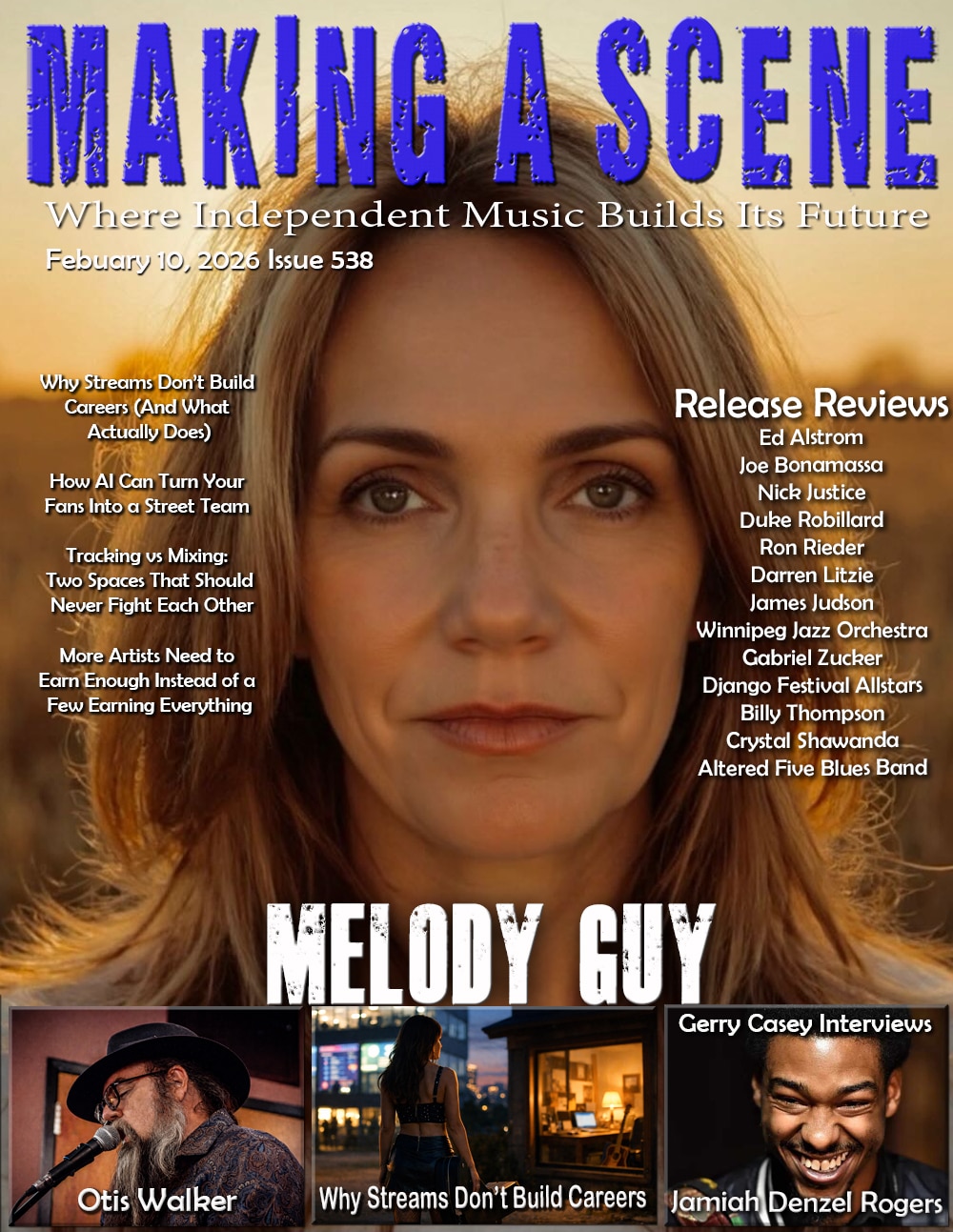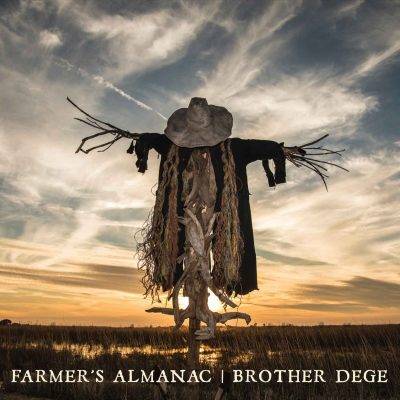Brother Dege Farmer’s Almanac
Brother Dege
Farmer’s Almanac
Psysouthern
We often loosely throw around certain terms like “haunting sound” and “eerily dark” to describe music. With Brother Dege’s fourth release, Farmer’s Almanac, the Louisiana native creates such a spooky, dark atmosphere with his southern tales of the unique mysteries of small towns, that terms like “haunting” and “dark” don’t go nearly far enough in capturing Dege’s approach.
He may yet not be a household name. but Brother Dege Legg is a Grammy-nominated (Quentin Tarantino’s Django Unchained) Louisiana musician, writer, and artist. Combining elements of Son House and William Faulkner, Dege certainly didn’t arrive here conventionally. With a string of odd jobs, hitchhiking, studying philosophy and writing, experimenting with drugs, fighting depression, doing some jail time and serious scuffling, Dege somehow emerged from it all to deliver riveting artistic statements.
Not only did Dege observe, but he studied the styles of the Delta blue artists, infusing their styles with his own experience of growing up in the Deep South – young, white, alienated, and lost. He combined the Delta blues guitar with his own brand of droning psychedelia, not unlike some of the movie scores of Ry Cooder for example; and found a way to make the backwoods sounds of Louisiana live and breathe in his songs. His first release in 2010 has since received major critical acclaim, including this statement from Tarantino, – “almost like a greatest hits album” of new Delta blues. How to Kill a Horse (2013) and Scorched Earth Policy (2015) followed. Dege has witnessed and experienced the prejudices, class order, and narrow thinking that pervades small towns. His view is first hand, forging another chapter in his cinematic vision of the South.
Using just an arsenal of guitars that includes slides and resonators, backed by drums and bass, he calls his group Brother Dege & The Brethren. He has instrumental bookends to the album- “Partial to the Bitters – Part 1 and Par t2. In between, as you glean the titles, “Country Come to Town,” “The Shakedown,” and “Bastard’s Blues,” all lead to the album’s centerpiece, the seven plus minutes “The Moon & the Scarecrow.” It embodies the essence of Dege’s lyrics and his approach in general – “I got to hear her cry/ I got to hear my angel calling/Such a long goodbye/Hope the sound don’t break me/It all comes down/When you’re lost in the middle in a bad way/and broken like an old vow/But don’t cry for me baby/We’re out here all alone/Who even knows where our souls are born?/ Or where they might be going/From on high to below with the moon and the scarecrow.”
The album continues the small town concept with titles like these: “Whiteboy” and “No Man Slave.” Rest assured that if this is this century’s version of the Delta blues, we are in good shape. Brother Dege brings a unique perspective that deserves attention.
- Jim Hynes
[amazon_link asins=’B07BGHBY2J,B003BOQ8VM,B00YDWYA6Q,B00F9KJSQS,B01EVDN3NM,B00YDWYV8I,B00F9KJW8M,B003BOU2T6′ template=’ProductCarousel’ store=’maasc-20′ marketplace=’US’ link_id=’de56e7ba-6379-11e8-a8a9-9758a20fccc3′]
Discover more from Making A Scene!
Subscribe to get the latest posts sent to your email.









